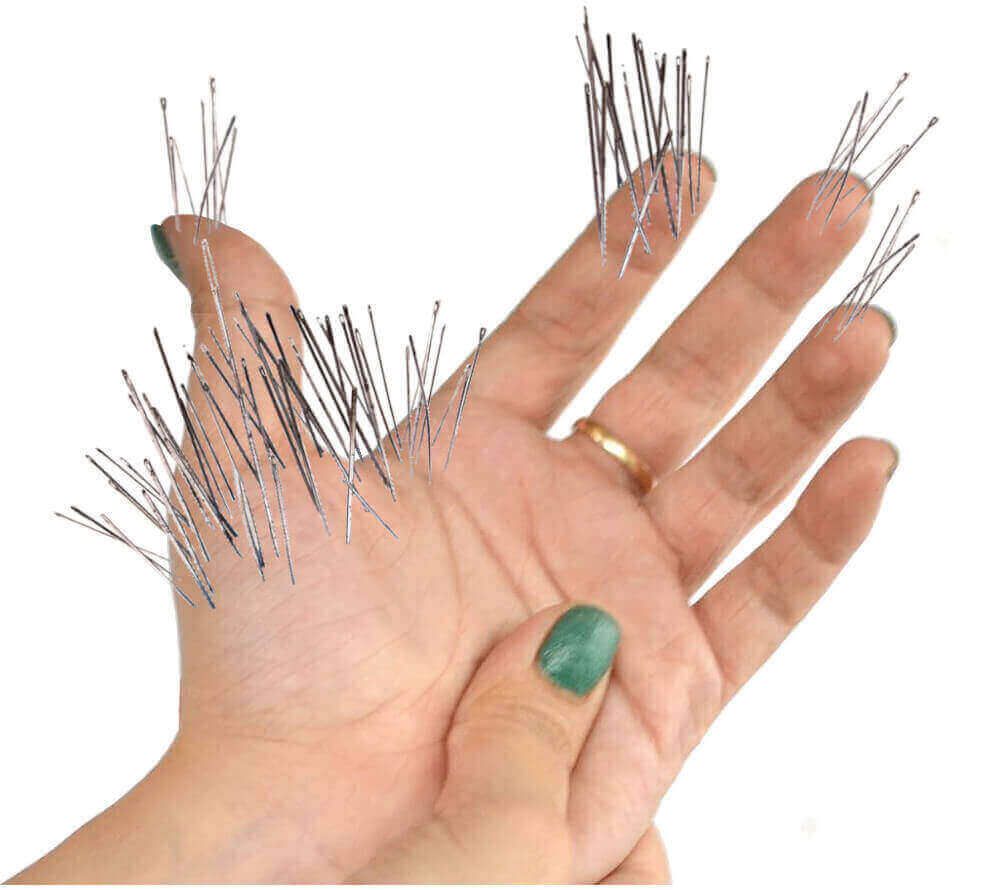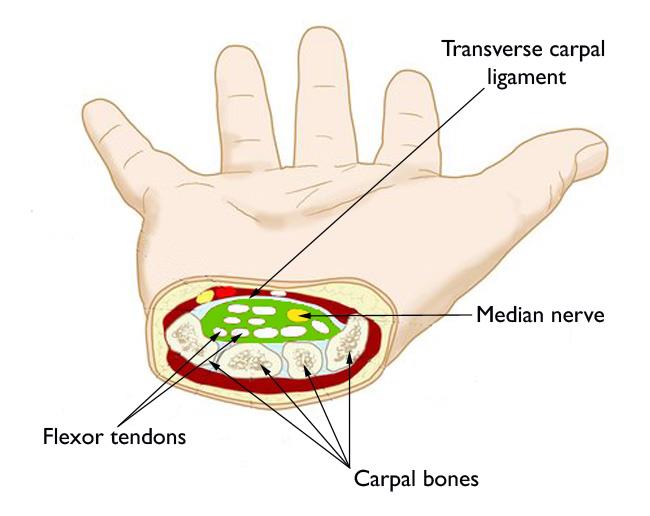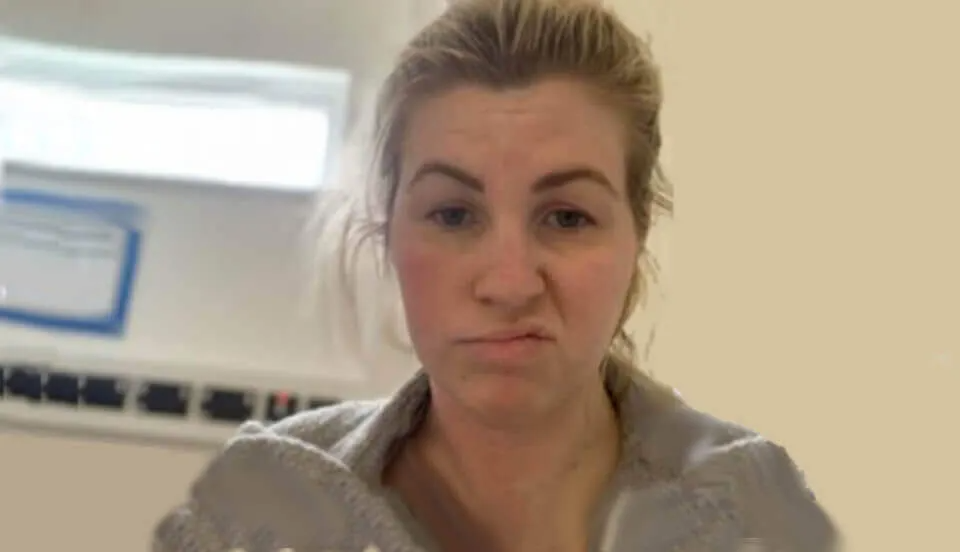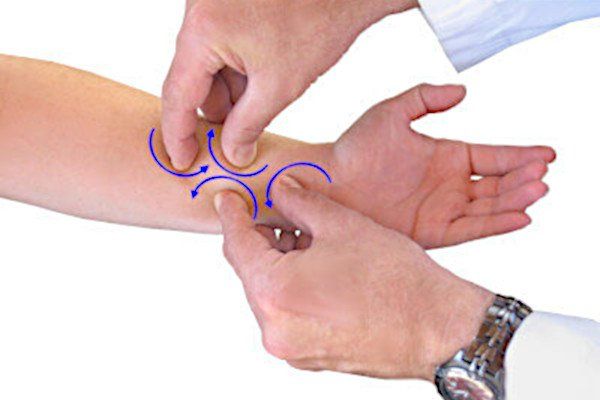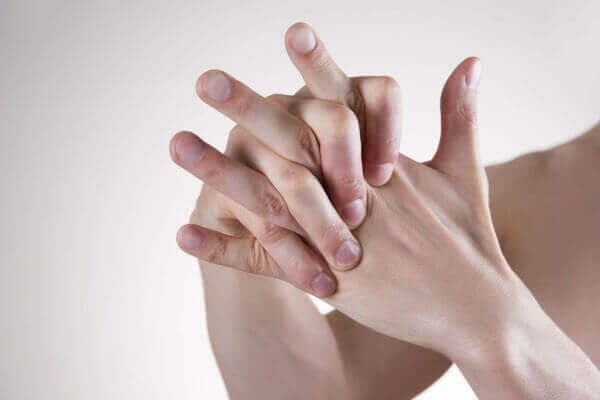Carpal Tunnel & Pregnancy
You've probably already learned that carpal tunnel & pregnancy are as common as bread and butter. You may even have
carpal tunnel symptoms
at this very moment.
So how do you get rid of those symptoms safely, without causing harm to your baby?
You'd never risk having
steroid shots or
carpal tunnel surgery which can harm an unborn baby. But there are
nonsurgical treatments
that are both safe for your child and highly effective in relieving symptoms. These are outlined below.
First let's learn about this painful condition. We'll see why carpal tunnel & pregnancy are so closely tied together.
How carpal tunnel & pregnancy are linked
A huge proportion of expectant mothers have symptoms of carpal tunnel. Pregnancy is definitely the cause - but why? What happens during pregnancy that can affect pain or numbness in the hand and fingers?
The reason begins with hormonal imbalance causing fluid retention.
Hormones during pregnancy
During pregnancy,
hormones are produced which result in various kinds of changes to your body. One of the greatest changes is how your body distributes and holds fluids, like water.
The result is often inappropriate and excess
fluid retention. This can cause other problems like changes in nerve sensitivity, urinary and bowel disturbances, erratic blood sugar concentration, and - of course -
tissue swelling.
It's well known that pregnant women experience swelling in parts of their body that never swelled before. Swollen joints are most common, primarily in the lower limbs (like the ankles).
The lower limbs are more prone to fluid retention and build up than other areas. However, swollen knees, arms, and wrists are also normal complaints during pregnancy.
And therein lies the underlying problem: fluid retention inside the wrist joint causes swelling.
Deep inside the wrist joint, there's a narrow passageway through which many crucial structures of the hand travel. It's called the
carpal tunnel
(hence the name of the disorder).
The two most important structures passing through this passageway are the
flexor tendons (responsible for curling your fingers) and the
median nerve.
Both are packed tightly together in this space.
The median nerve is a main nerve of the hand. It's primarily responsible for carrying sensations from the palm and fingers to the brain. These sensations include pain, touch, temperature, and vibration.
The median nerve lies in a crowded field of flexor tendons (see above image) as they all pass through this carpal tunnel channel. If any swelling occurs in this channel at the wrist joint, the median nerve gets crushed.
This is why pregnant women get carpal tunnel: pregnancy hormones cause fluid retention and swelling inside the wrist joint which crushes the median nerve. That crushing is what causes all of the symptoms of carpal tunnel syndrome.
Note that pregnant women are not the only people vulnerable to problems resulting from fluid retention. Those with other
metabolic disturbances can also retain fluid, and also get carpal tunnel syndrome. Examples are:
- menopausal women
- patients with kidney disease
- people with diabetes
These people are at high risk for getting carpal tunnel syndrome. The difference is that carpal tunnel & pregnancy are usually
temporary. In contrast, carpal tunnel with these other conditions tends to be
chronic.
Carpal tunnel risks & symptoms
Risk factors
If you're already at high risk for developing of carpal tunnel, pregnancy will surely bring it out. Aside from pregnancy, the other most common risk factors for developing this disorder are:
Symptoms
The most common symptoms of carpal tunnel syndrome occur in the fingers and hand. The symptoms can appear in all of the fingers except the pinky finger. And symptoms only happen on the palm side of the hand. These are:
When symptoms start off, they may only bother you while you're trying to sleep. But as they advance, symptoms will begin to appear during the day. They will also increase in intensity.
Carpal tunnel & pregnancy facts
It's hard to believe, but formal studies of carpal tunnel & pregnancy are still in their infancy (please excuse the pun). It only began being formally
studied scientifically in 2013 Dr. A. Zyluk.
Since then, huge amounts of additional research have concluded that carpal tunnel & pregnancy are not only common,
but practically the rule.
The latest evidence indicates that at any given moment, approximately
1 million pregnant women have carpal tunnel syndrome. In fact, if pregnant, you're more likely to get carpal tunnel syndrome than not.
Other key facts about carpal tunnel & pregnancy are:
- The
prevalence of carpal tunnel & pregnancy is 11% (in the first trimester), 26% (in the second trimester), and 62% (in the third trimester).
- Carpal tunnel is
improperly diagnosed by
doctors 48% of the time.
- Symptoms may start slowly but usually worsen in the third trimester.
- In
85% of women the condition resolves within 6 weeks postpartum.
- In another
15% of women symptoms persist or worsen by 1 month postpartum .
Safely treating carpal tunnel during pregnancy
Some expectant mothers chose to ride out carpal tunnel symptoms during pregnancy. They're gambling they won't be one of the 15% of women who have persistent postpartum pain or numbness.
But other women just can't stand the pain or numbness one minute longer. That means their only options are
non-drug and
nonsurgical treatments.
So what options are both effective AND won't harm your baby? Luckily, there are some good ones.
Myofascial release massage therapy
Stretching exercises
Night bracing
Conclusion
While carpal tunnel & pregnancy go hand in hand, you don't have to suffer. There are several nonsurgical and non-drug remedies which can make symptoms disappear without harming your baby. These natural remedies are myofascial release massage, carpal tunnel stretching exercises, and night bracing.




